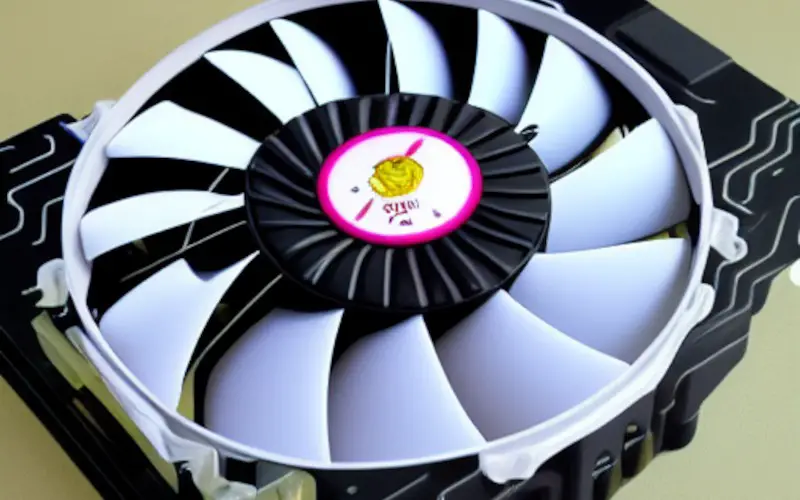If you are a PC builder enthusiast, you have probably wondered about the difference between 120mm and 140mm case fans. The larger the fan, the more airflow it can produce. However, other factors must be considered when choosing the right size fan for your case.
Choosing a fan that will fit properly in your case and has the right amount of airflow for your needs is vital. If you are unsure which size to choose, this article will compare the two fan sizes and help you decide which is right.
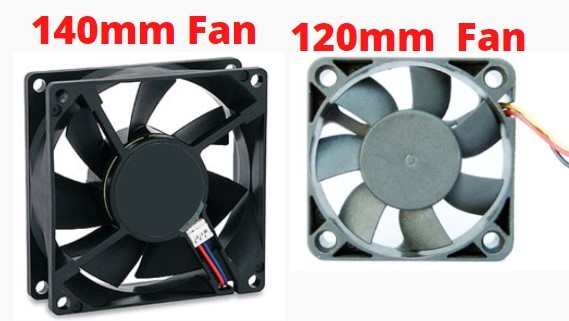
120 mm Case Fans
The 120mm case fans are the most popular case fan size, often the standard size included with computer cases. The extra-large blades on the fan help move a lot of air and are often used in high-performance gaming computers. Some of the best 120mm case fans can move up to 100 CFM of air, which is a lot of airflows.
If you are looking for a case fan that can move a lot of air, then the 120mm case fan is the right choice. They have dimensions of 120mm x 120mm x 25mm. The weight of the fan is only 0.28 lbs.
They offer excellent airflow and cooling while being relatively quiet and low-profile. You can find them in various colors, so you can choose the one that best fits your style.
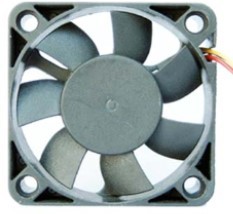
140 mm Case Fans
140 mm case fans are a great way to keep your computer cool. They are larger than most other fans, so they can move more air and keep your components cooler. 140 mm fans are also relatively quiet, so they won’t add too much noise to your system.
They offer great performance and can be a great addition to any computer. Offers more lighting effects and color selections than any other size.
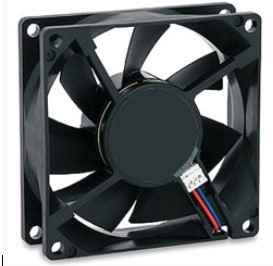
As the top of the range for case fan sizes, these massive cooling fans move a ton of air and ensure your system stays cool, even under heavy load. If you want the best cooling for your gaming rig or workstation, 140 mm case fans are the way to go.
Difference Between 120mm And 140mm Case Fans
Before choosing the right size case fan for your computer, you must understand the difference between 120mm and 140mm case fans.
The most apparent differences are:
1. Cooling
The essence of a case fan is to act as an extra cooling measure for your CPU. A 120mm case fan will offer just as much cooling potential as a 140mm case fan. Many users find that the smaller 120mm fans are just as effective, if not more so, than their 140mm counterparts.
The 120mm case fan has the CMF advantage of moving more air at a higher velocity than the 140mm case fan.
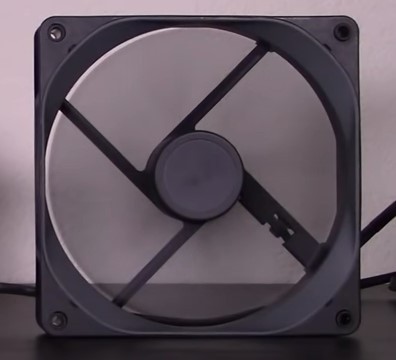
2. Static Pressure
Static pressure measures a fan’s ability to push air through a surface. The higher the static pressure, the better the fan will perform in applications with resistance, such as when pushing air through a dense radiator.
For 120mm fans, the average static pressure is between 1.17 and 1.97 mmH2O. For 140mm fans, the average static pressure is between 1.33 and 2.11 mmH2O. This means that, on average, 140mm fans have slightly better static pressure than 120mm fans.
3. Noise Level
Do you want a quiet or silent PC? Then you’ll want to consider the noise level of your case fan. A 120mm case fan typically has a noise level between 25 and 30 decibels, while a 140mm case fan will have a noise level between 20 and 25 decibels.
The higher the fan’s noise level, the more air it can move.
4. Budget
Regarding budget, 120mm and 140mm case fans are relatively affordable. Depending on the specific model and brand, you can find either fan size for around $15. However, when it comes to overall value, 120mm case fans are typically the better option.
This is because they often come with more features and better price performance. 120mm case fans are generally the way to go if you want to save a few dollars.
Related: How to Fix CPU Fan Error
5. Spinning Ability
In terms of sheer spinning ability, 140mm case fans have the edge. Their larger size allows them to move more air than 120mm fans. This is especially true when they are spinning at high speeds. However, 120mm fans may be better for low-speed operation.
This is because they have less resistance and can start spinning more easily. They also tend to be quieter than 140mm fans at low speeds.
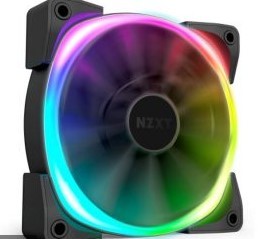
6. Size
One of the biggest differences between 120mm and 140mm case fans is size. A 120mm fan will be smaller than a 140mm fan. This is important to consider because it will affect the overall airflow in your case.
If you have a smaller case, you may opt for 120mm case fans, so they don’t take up too much space. However, if you have a larger case, you may want to use 140mm case fans to get the best possible airflow.
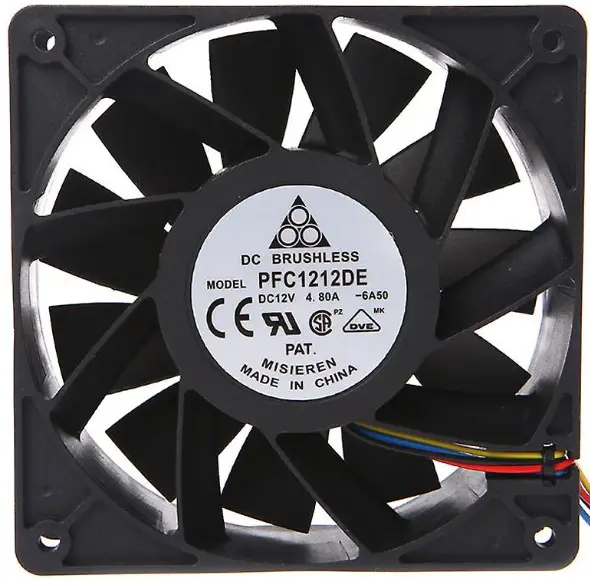
7. Weight And Dimensions
The average weight of a 120mm fan is about 100 grams, give or take. The dimensions are approximately 120 x 120 x 25 mm. A 140mm fan, on the other hand, has an average weight of 150 grams and dimensions of around 140 x 140 x 25 mm.
The weight and dimensions of a fan are important to consider because they can affect the overall balance of your computer case. If you have a lot of heavy components, you might want to go with a bigger fan to help offset the weight.
Conversely, if you have a smaller case, you might want to use a smaller fan to save space.
8. Better Airflow
If you are building a PC that needs more airflow, such as a gaming PC, you might consider using 140mm case fans. The larger fan size will allow it to push more air, providing better airflow for your components.
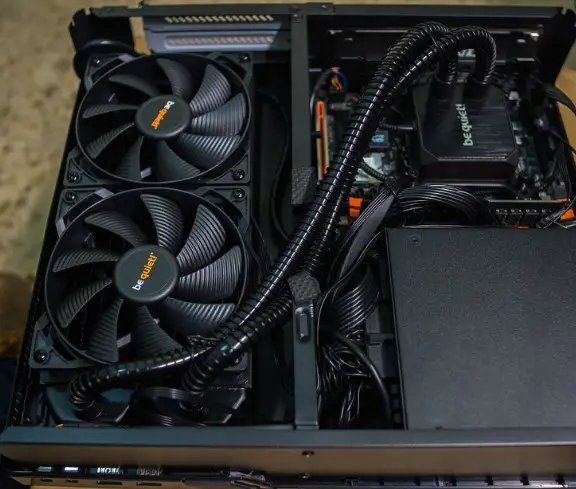
120mm case fans are still a good option for most builds, but if you need the extra airflow, then 140mm case fans are the way to go. They are also generally quieter than 120mm fans, so 140mm case fans are a good option if you want a quiet PC.
What Is the Best Way To Cool My PC?
Your PC is essential to your life, so you want to keep it running as smoothly and efficiently as possible. One way to do this is by ensuring that it is adequately cooled.
Here are a few tips on how to keep your PC cool:
- Make sure that your PC is not placed in an enclosed space.
- Ensure that there is adequate airflow around your PC.
- Use a cooling pad or fan to help circulate air around your PC.
- Keep your PC clean and dust-free.
- Regularly check your PC’s temperature and ensure it is not overheating.
Related: How to Fix GPU Fans Not Spinning
How Many PC Fans Is Too Many?
The number of PC fans is a matter of personal preference. Some people like to have a lot of fans, while others prefer fewer fans. Ultimately, it is up to you to decide how many fans you want on your PC.
However, there are a few things to consider when deciding the number of fans:
- The size of your PC case: If you have a large case, you can afford to have more fans. However, if you have a smaller case, you might want to limit the number of fans to avoid overcrowding.
- The noise level: More fans typically means more noise. If you are sensitive to noise, you might want to limit the number of fans.
- The airflow: More fans typically mean better airflow. If you are concerned about airflow, you might consider having more fans.
Ultimately, deciding how many PC fans are is up to you. Consider your own needs and preferences when making a decision.
How Long Does A Computer Fan Last?
The average lifespan of a computer fan is around three to five years. However, some factors can cause a fan to fail sooner. The most common reason for premature failure is dust buildup. When dust accumulates on the blades of a fan, it causes the fan to work harder to move the air.
This puts extra strain on the motor and can eventually lead to failure. Another factor that can shorten a fan’s lifespan is excessive vibration. If a fan is mounted in a case that vibrates excessively, the vibrations can damage the bearings and cause the fan to fail. Improper installation can also lead to premature failure.
If a fan is not installed properly, it can come loose and cause damage to the surrounding components. Improper installation can also cause electrical shorts, damaging the fan or other components in the system. Installing fans according to the manufacturer’s instructions is generally best to avoid problems.
The lifespan of a computer fan can also be affected by the type of fan used.
Cheaper fans are usually made from lower-quality materials and are likelier to fail sooner than higher-quality fans. Also, cheaper fans may not have proper bearings or lubrication, leading to premature failure.
When selecting a fan for a computer, it is important to choose a high-quality model from a reputable manufacturer. Doing so can help ensure that your fan will last for many years.
Frequently Asked Questions
Should I Run My PC Fans At Full Speed?
No, it would be best if you did not always run your PC fans at full speed. Doing so can shorten their lifespan and decrease their overall efficiency. Additionally, high fan speeds can make your PC louder than necessary.
Instead, it would help if you only increased your fan speeds when your PC is under heavy load, causing your components to run hot. When playing games or running other demanding applications, you may need to increase your fan speeds to prevent overheating temporarily.
You can control your PC fan speeds using your motherboard’s BIOS or UEFI settings. Some motherboards also come with fan control software to adjust your fan speeds.
Should I Put Fans Under My GPU?
If you want to improve your GPU’s cooling, you may be wondering if you should put fans under your GPU. The answer to this question depends on a few factors, such as the size of your case and the type of GPU you have.
If you have a small case, there is likely not enough room to put fans under your GPU. In this case, you may consider putting fans in front of or behind your GPU.
You can put fans under your GPU if you have a large case. However, you will need to ensure that the fans are not blowing directly onto your GPU, as this can cause overheating.
The type of GPU you have will also affect whether or not you should put fans under your GPU. If you have a water-cooled GPU, then it is probably not necessary to put fans under your GPU.
Is 6 Fans Enough For A Gaming PC?
As long as you have good airflow in your case, six fans should be enough. If you have a powerful graphics card or CPU, you may need more fans to keep everything cool. But for most people, six fans should be plenty.
If you’re not sure how well your case ventilation is, you can always open it up and take a look. If you see dust buildup, that’s a sign that you need to clean your case more often. If you have good airflow, though, six fans should be enough.
Should Top PC Fans Be Intake Or Exhaust?
Top PC fans are important to keep your computer cool and running smoothly. But there is debate over whether intake or exhaust fans are better for cooling. Let’s look at the pros and cons of each type of fan to help you decide which is best for your needs.
Intake fans bring cool air into the case and help to keep components cool. Exhaust fans push hot air out of the case and help to keep temperatures down. Both types of fans are important for cooling, but which one is best for you depends on your needs.
If you live in a hot climate or your computer is in a hot room, intake fans might be a better option. They will help to bring in cooler air from outside the case and keep temperatures down.
If you live in a cold climate or your computer is in a cool room, exhaust fans might be a better option. They will help to push hot air out of the case and keep temperatures down.
Either way, make sure you have plenty of fans in your case to keep things cool. And if you’re unsure which type of fan is best for you, consult a computer specialist to find the best option for your needs.
Can You Run A PC With 1 Fan?
It’s possible to run a PC with one fan, but it’s not recommended. Running a PC with only 1 fan can lead to overheating and potentially damage your components. It’s best to have at least 2 fans installed on your PC, with one blowing in and one blowing out.
This will help ensure proper airflow and keep your components cool. If you want to save money, try using a single-case fan and see how it goes. Monitor your temperatures and ensure they don’t get too high.
Do Case Fans Help Cool CPU?
Yes, case fans can help cool a CPU. By moving air across the surface of the CPU, case fans can help dissipate heat and keep the CPU cooler. Additionally, case fans can help draw cool air into the case from outside, which can also help keep the CPU cool.
Conclusion
It depends on your needs for 120mm vs. 140mm fans. The 140mm fan is the way to go if you need more airflow. The 120mm fan is the better option if you need less noise. It comes down to what you need and what you’re willing to sacrifice.
The fan case is also a factor to consider. The 120mm fan is probably your best bet if you have a smaller case. But if you have a larger case, you might be able to fit a 140mm fan without any issues. Ultimately, it’s up to you to decide which is best.

